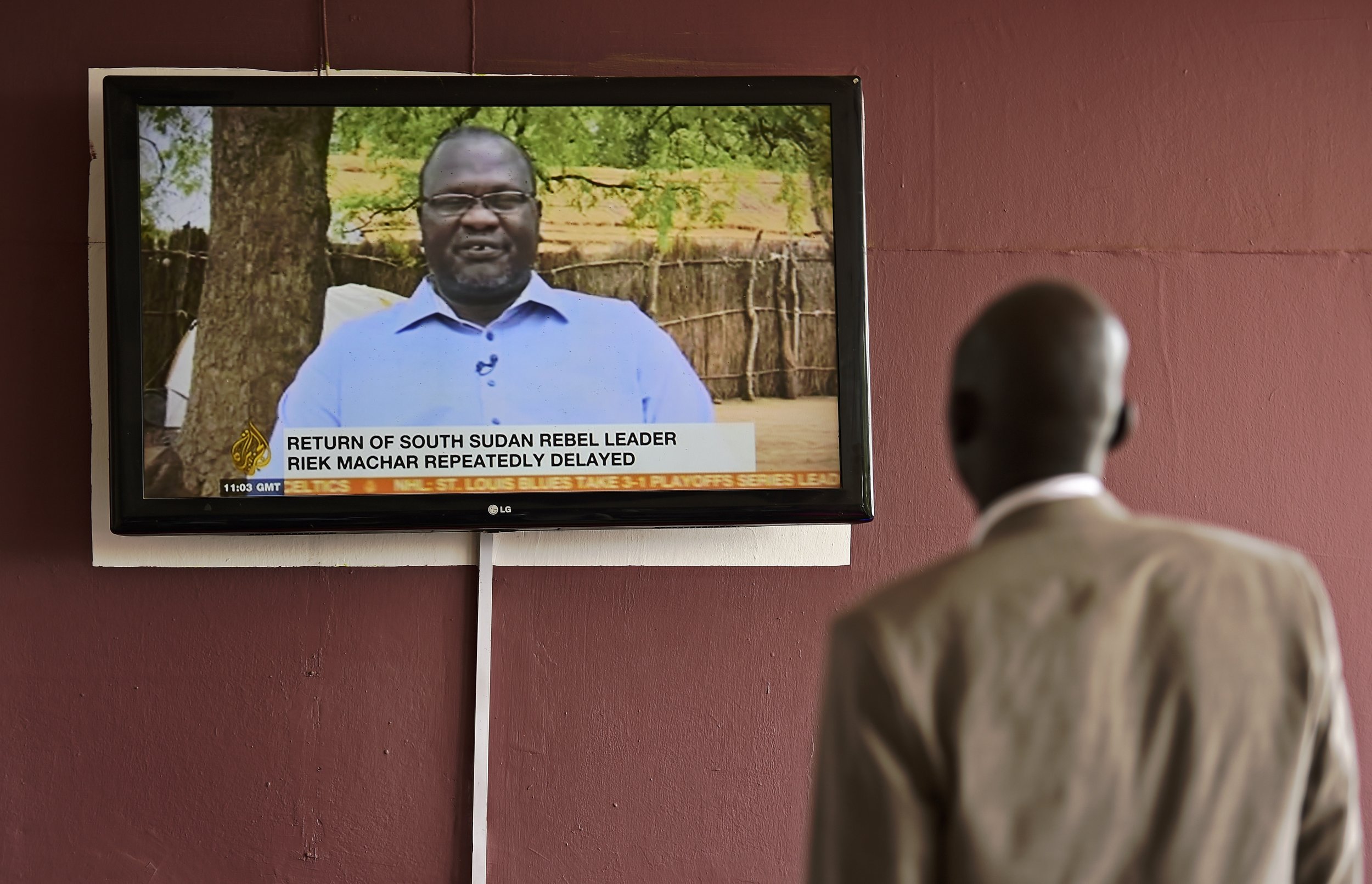
A full week after he was scheduled to touch down in the capital Juba after a two-year absence, South Sudanese rebel leader Riek Machar remains an elusive figure.
Machar's arrival has been held up by a dispute between his people and the government of South Sudan's President Salva Kiir about the number of troops and weapons which the rebel leader is permitted to bring to the capital.
Originally slated to return on April 18, Machar has now missed an internationally-backed deadline of Saturday to return to Juba to take up the post of vice president, to which he was reappointed by Kiir in February. Marooned in the Ethiopian border town of Gambella, Machar accused the government of "stalling" and said on Saturday that he hoped to make it on Monday. That has also failed to come to pass.
There is a lot riding on Machar's return. The last time he was in Juba was December 2013, two years after South Sudan had earned the title of the world's youngest country by seceding from Sudan in 2011. After serving as a commander in the war for South Sudan's independence, he retained the post of vice president after secession but was sacked in July 2013 after falling out with Kiir. Come December 2013, the country dramatically descended into civil war after Kiir accused Machar of plotting a coup. Initial fighting between soldiers from the two sides spilled out of Juba and has ravaged the country since, claiming thousands of lives and displacing more than 2 million people.
Machar's proposed return follows a tentative peace deal signed in August 2015 and an agreement struck in January by both sides to share cabinet posts in a transitional government of national unity. The chairman of the body monitoring the peace deal, the Joint Monitoring Evaluation Committee, warned after Machar's initial delay that the peace agreement had been put "at risk" by the postponements, while the U.S. State Department said on Saturday that Machar's failure to turn up in Juba constituted "a wilful desire not to abide by his own commitments."
.@statepdeptspox on Riek Machar's failure to return to #Juba, form transitional gov't of national unity.#SouthSudan https://t.co/xwxncVw2xC
— Department of State (@StateDept) April 19, 2016
The ongoing wrangle is evidence of the "nervousness" present on both sides about the fragility of the agreement, says Emma Gordon, senior East Africa analyst at global risk consultancy Verisk Maplecroft. "It also highlights the huge levels of mistrust between Machar and Kiir and it shows that the peace deal we have now isn't necessarily comprehensive enough," says Gordon. "[While] it's a step in the right direction, the deal doesn't actually resolve all of the tensions that sparked the violence in the first place."
Since the civil war's outbreak, Juba has not been at the epicenter of the violence, which has focused in the north and east of the countries in states such as Jonglei and Unity. Gordon says Machar's return to the capital is raising fears that Juba—South Sudan's biggest city—could once again descend into chaos.
The ongoing conflict has had myriad impacts on the people of South Sudan, including pushing the country to the brink of famine with 2.8 million people—almost one-quarter of the population—in desperate need of humanitarian assistance, according to the United Nations. Despite being oil-rich, South Sudan is predicted to record negative GDP growth in 2015 after growing by 30.7 percent in 2014, largely due to the conflict, declines in oil production and the global fall in oil prices.
The conflict has also brought ethnic tensions into sharp relief—Machar and Kiir are members of the two main ethnic groups in South Sudan, the Nuer and Dinka respectively and some of the early fighting appeared to be ethnic in nature.
Gordon predicts that necessity will push Machar and Kiir into working together but that underlying tensions will persist. "The economic crisis in South Sudan desperately needs to be addressed and I think there will be an agreement that will mean the two sides can create this government," says Gordon. "That said, tensions between the Dinka and Nuer—particularly in periphery areas in the north and east—are not going to go anywhere. I don't think governance will be effective, but the transitional government will function as it needs to."
Uncommon Knowledge
Newsweek is committed to challenging conventional wisdom and finding connections in the search for common ground.
Newsweek is committed to challenging conventional wisdom and finding connections in the search for common ground.
About the writer
Conor is a staff writer for Newsweek covering Africa, with a focus on Nigeria, security and conflict.
To read how Newsweek uses AI as a newsroom tool, Click here.








